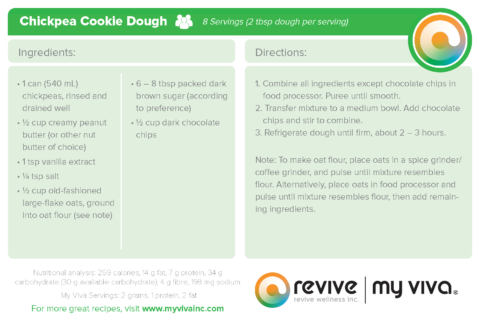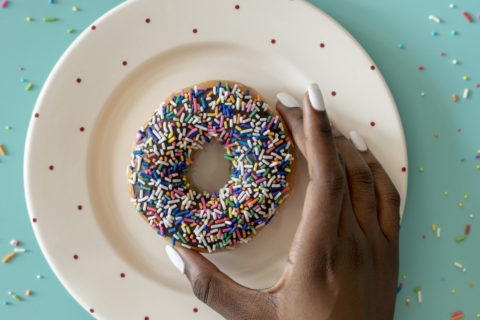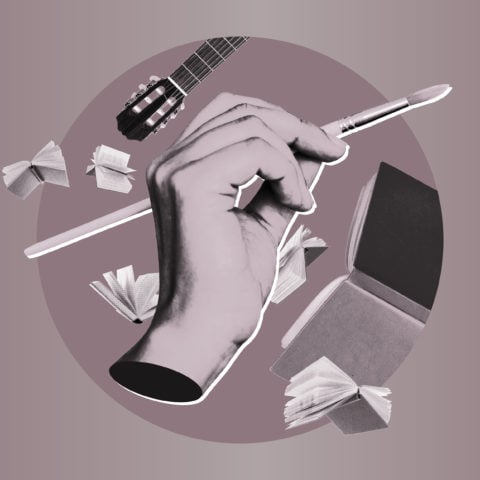Snacking More Now That You’re at Home? Here’s What You Need to Know
We spoke with Edmonton-based registered nutritionist and dietitian Brandon Gruber to find out how our change in scenery is affecting our eating schedules.
We’re now entering our fifth week of social distancing, with no clear end in sight. Whilst this new “normal” might be starting to feel slightly less weird than it did a month ago, chances are that it’s still not feeling totally normal. And that’s OK. We’re all still figuring it out. And one such area that it seems we’re all still trying to get our heads around is snacking – working from home and just being home in general means we’re in far closer proximity to our fridge at all times. In turn, this means we’re never more than a few steps away from snacks at any given time. Contemplating my own desire to know how to stop snacking as frequently, as well as the increased commentary on social media on the topic, I decided to reach out to dietitian/registered nutritionist at Revive Wellness and My Viva, Brandon Gruber, to get his thoughts on the subject.
As for why we’re more inclined to snack now, Brandon says that it’s probably due to a few reasons. “The first is a routine change – you’re shifting your routine from being at work, and now your schedule is set to working from home and potentially not working at all so you have to create your own schedule and your own routine that’s not as ingrained in your day. That brings with it less structure, and potentially less regular meal times and less meal balance – these are all things that set the stage for needing to snack more throughout the day than if you’d had three square meals with a snack in between. Another reason is environmental factors. Your home set-up is probably pretty different to your workplace and maybe you have snacks around that you otherwise wouldn’t. Pair that with less meal regularity and less balance and [you snack more] because it’s there and you’re hungry.”
Stress also plays a key role, says Gruber. “Especially now, people’s stress levels are a little bit higher so the responses to that are very individual. For some people, when their stress goes up, so does their appetite. And it’s easier to procrastinate when you’re at home, and people can use eating as a way to procrastinate.”
It’s important to remember though that snacking isn’t all bad. “We’re seeing a lot of messaging about people snacking more, and we might look at all of our snacking with a more critical eye when we snacked before anyway,” Gruber explains. “It’s kind of putting a negative spin on it.” He suggests you “assess whether or not it’s an issue that you actually need to address to begin with.”
For example, you might be snacking more but if your overall diet is fairly healthy and balanced and having a snack gives you a mood boost (however temporary), it’s not likely an issue. If you do think it’s an issue, however, Gruber says to look at what factors could be leading to it. “Is it your eating schedule? Your sleep schedule? Stress management? Meal balance? It’s about finding a way to address the irregularities and inconsistencies with those things.” He offers, “When you do snack, be intentional about it,” adding that it’s important to keep portion in mind, too.
Realistically, the likelihood of us stopping snacking anytime soon is not overly high but Brandon offers a few alternatives that you could try in place of your current go-to. “For salty/crunchy foods, a really popular one that I recommend is roasted beans/lentils/peas. They’re high fibre and high protein. Trail mix is a mainstay for sure. You can even combine the trail mix with the roasted beans or lentils – they work so well together. Yoghurt and dairy can be eaten in place of ice cream. Popcorn is a really good one – air popped with a little bit of oil and a little bit of salt.”
We all know that veggies and hummus is a slam-dunk snack but for those with a sweet tooth, he recommends “making a sweeter hummus, which I call dessert hummus (recipe below), that you can dip fruit in.” Another option is banana boats. “You basically put chocolate chips and peanut butter inside of a banana and bake it in an oven.”

Importantly, Gruber says it’s imperative to be kind to yourself during this time of uncertainty. “We’ve got to be realistic with ourselves and be lenient. I wouldn’t expect most people to be able to tackle large amounts of change at one time, but when [we find ourselves in a situation like we are now with COVID-19], we expect ourselves to, all of a sudden, be able to function in a whole new way and that’s not necessarily how it works.”
Looking for more wellness advice? My Viva is Revive Wellness’ digital hub where you’ll find a series of webinars to help you healthily navigate through this time. Click here for more.








